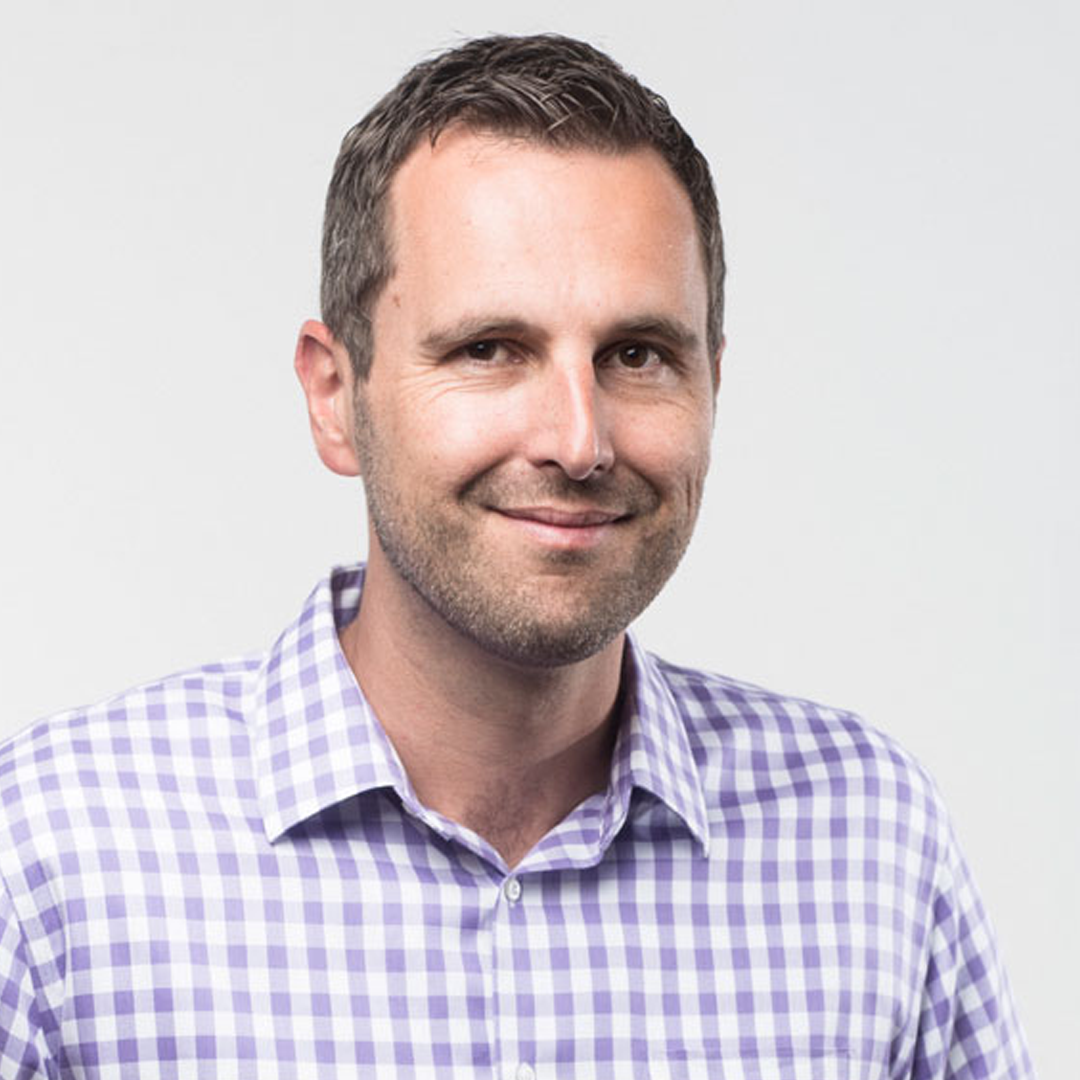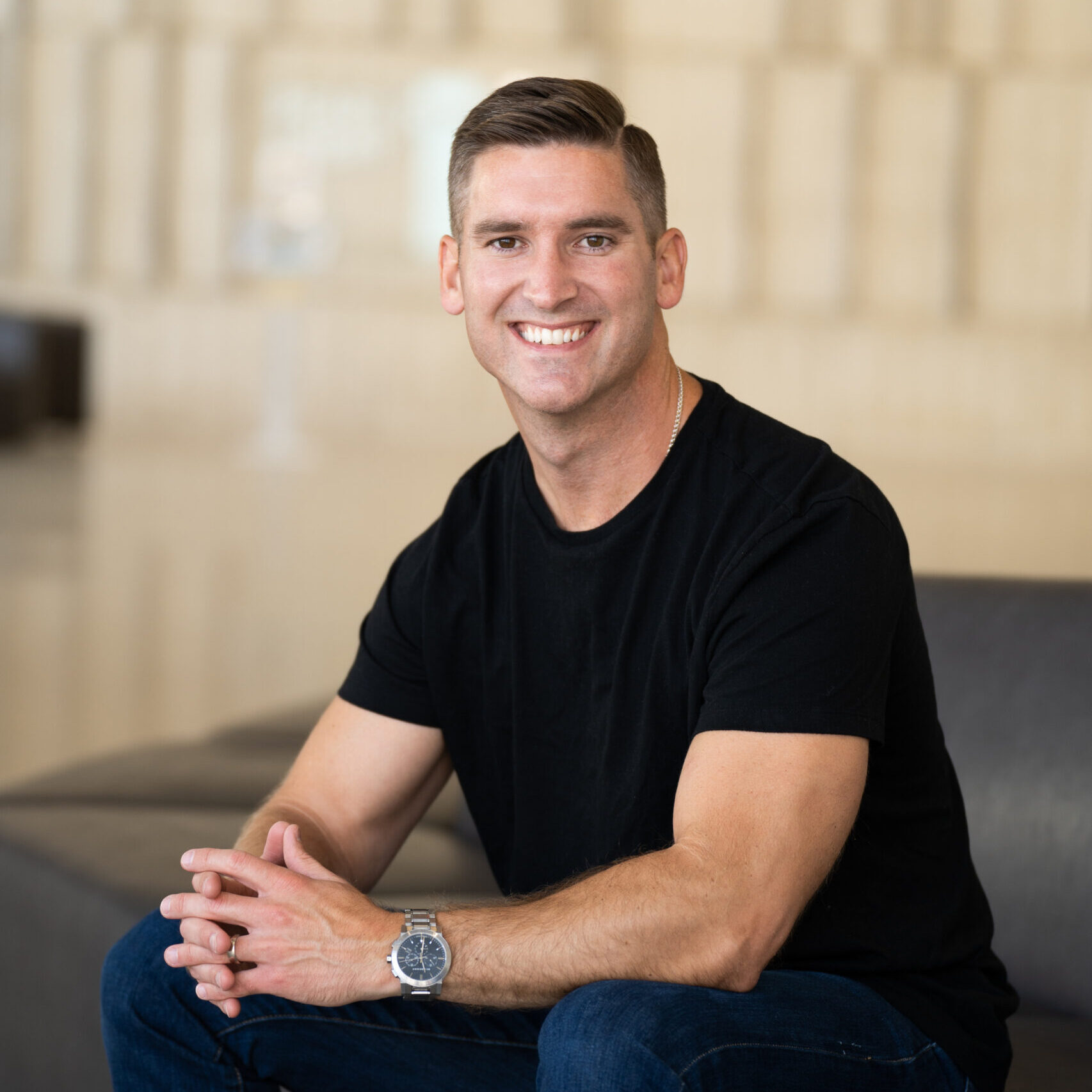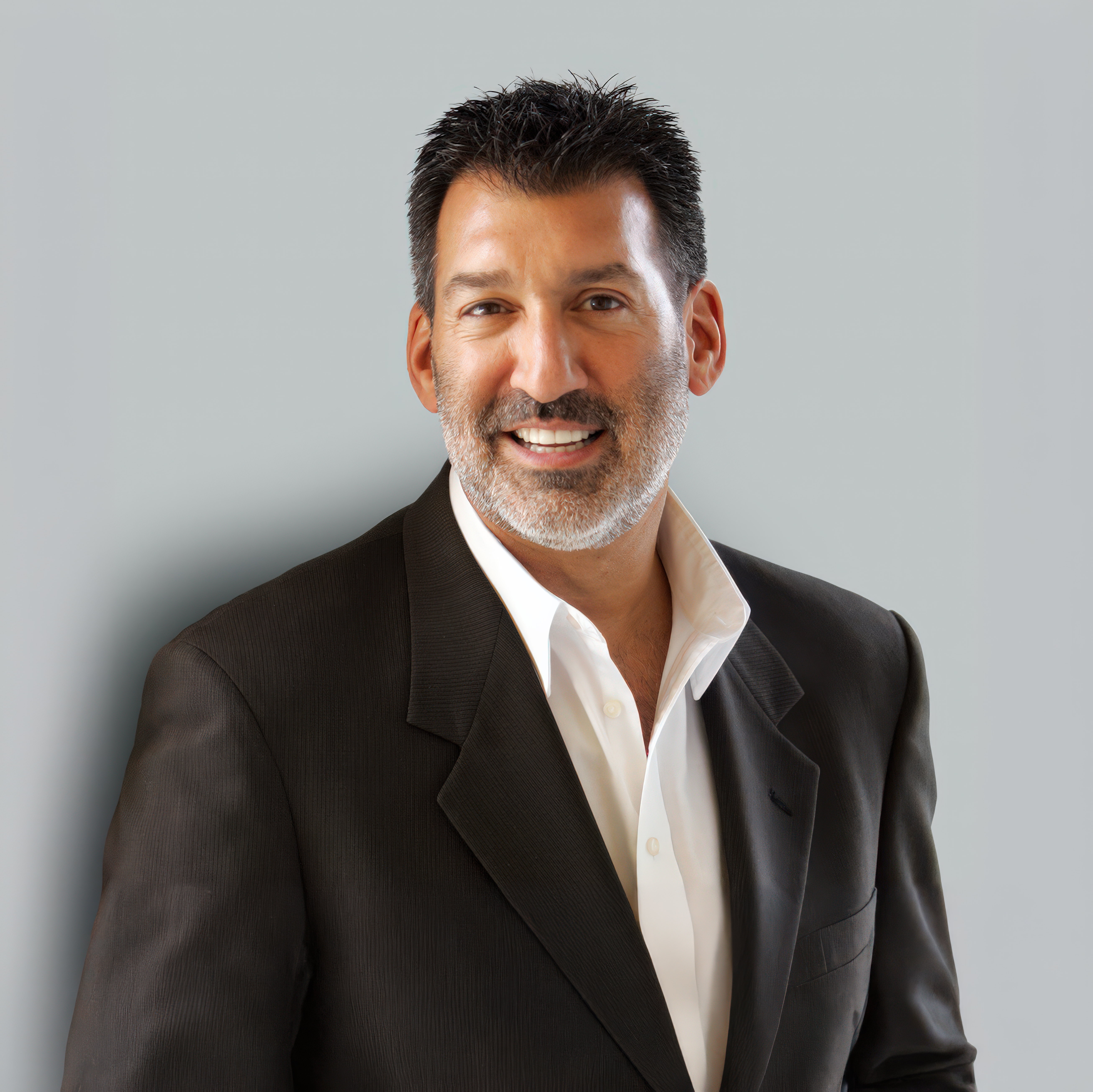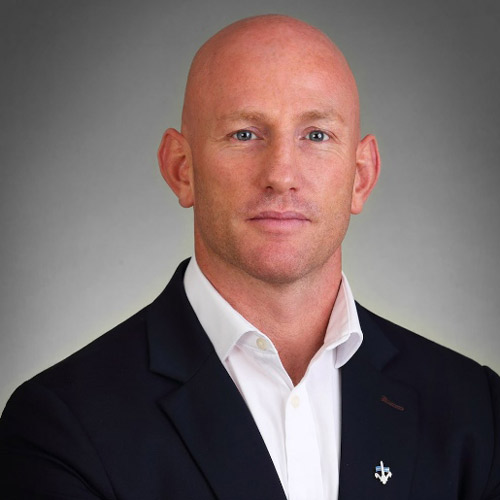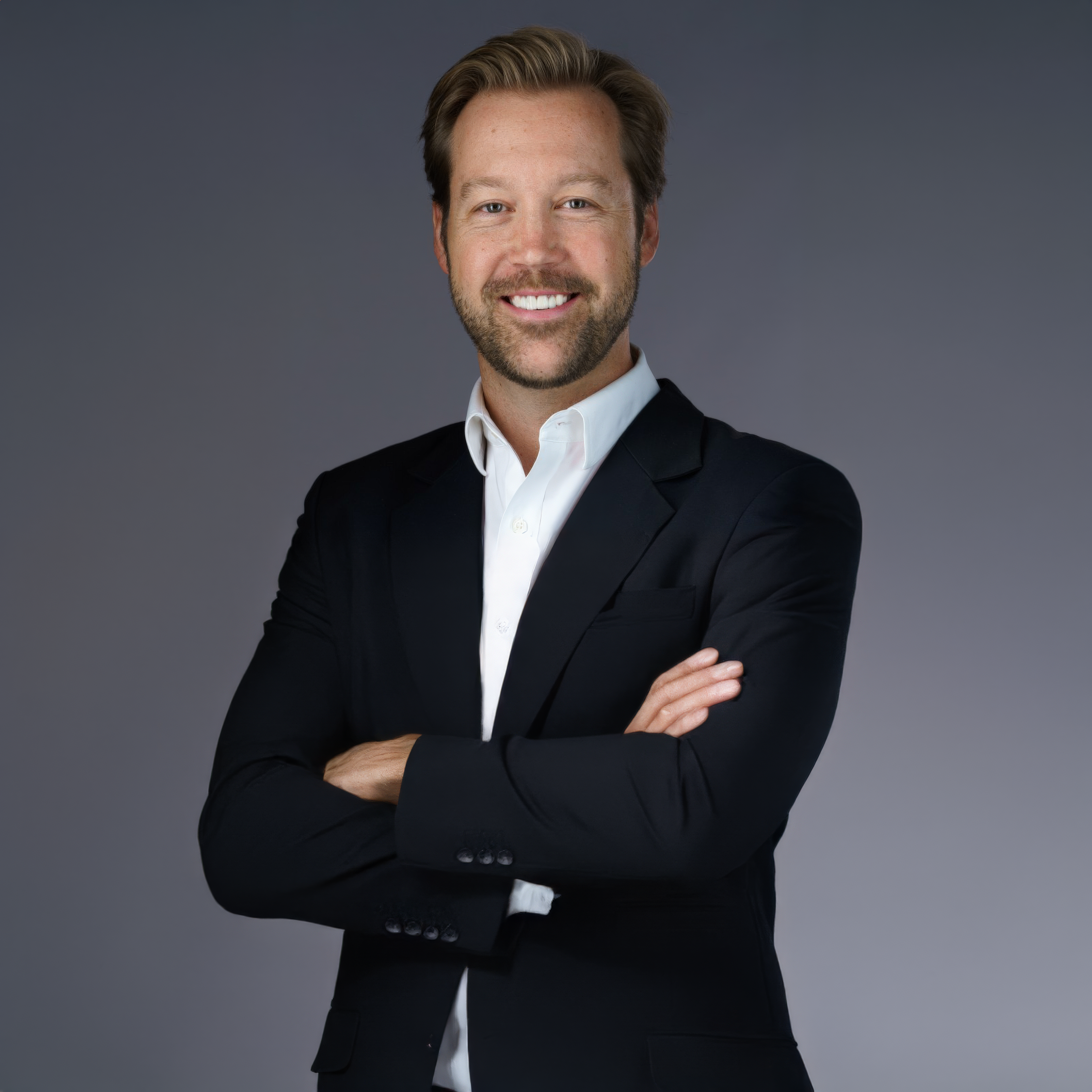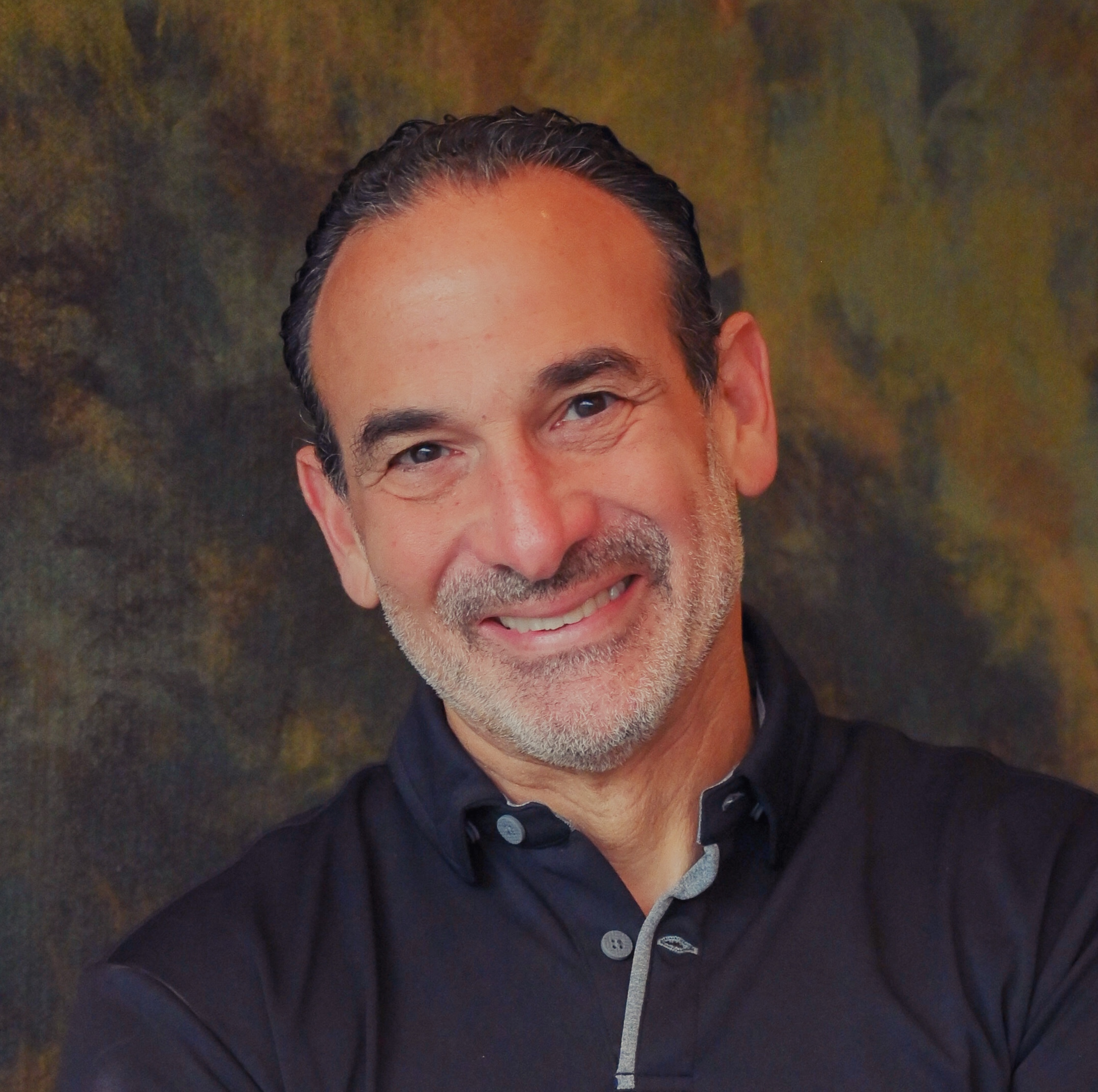RV (01:01):
One of my favorite things is when I meet somebody, who’s kind of starting out on their journey and then I lose touch with them. And then I come back and we reconnect and they have like exploded and become huge and influential. And just even, you know, as awesome as they were. But now the whole world knows that. And that’s how I kind of feel about Todd Henry because we’ve known each other for years. And I feel like I was around as a guest, maybe on, on one of his early podcasts. And now his podcast, if you haven’t heard of, it’s called the accidental creative. It has over 10 million downloads and he is one of the world’s leading thinkers on creativity leadership and passion, and just kind of like bringing out your everyday brilliance. And he describes himself as an arms dealer for the creative revolution.
RV (01:54):
He’s written five books. His most recent is called the motivation code. And I just think he’s amazing at helping people access their creativity and helping leaders learn how to pull out the creativity and the ingenuity and the innovation of their teams. And so he’s one of my favorite people in the space. I love his podcasts. I was on his podcast again recently, and we shared the stage on different years at a, at a very large speaking event called the global leadership summit. And that was how we reconnected. And man, it’s just great to see you and I love what you’re up to. So thanks for making some time for us
TH (02:32):
Rory. It’s great to see you as well and always a pleasure to chat with you. I, I always walk away with a combination of like ins inspiration and challenge. Every time I talk with you challenged to up my game, but inspiration that I can actually pull it off. So thanks for all that you’re putting into the world as well.
RV (02:52):
Yeah. Yeah. Well, likewise and I, you know, I think as you know, we’ve known each other as colleagues, but as like a consumer I’m very interested about the stuff that you teach and at about accessing creativity. And I find you know, as I get further, along in my career, there’s a li there’s even more focus on and more, more flexibility for me to go. I want to dive deeper and I really want to even, you know, understand my passion and speak my passion and access some of my truth.
So Rory when we have that conversation, whether it’s an, a new, younger, personal brand, or, you know, someone who’s more experienced like URI, what do you think are some of the roadblocks there to accessing that creativity, whether it’s writing a book or starting a podcast or a course, or being a speaker? I think it’s like when I think about being creative, it almost seems like it’s less of a, maybe this isn’t right. Less of something we have to learn, and it’s more of roadblocks that we have to remove. So that, that naturally shows up. So what are some of your thoughts around those roadblocks and how to get past them?
TH (04:05):
Yeah, I think one of the big challenges for anybody who wants to put something into the world is that the very thing that you’re probably most equipped to put into the world and probably most motivated to put into the world is the thing that seems most obvious to you. It’s something that you’ve been thinking about for a very long time. Maybe the other people don’t think about quite as much as you do. And so for a lot of people, when they start thinking about putting an idea out into the world in some capacity, they think, well, that’s not going to fly. I mean, everybody knows that, or that’s obvious to everybody. And the reality is though it’s obvious to you. It’s not obvious to everybody. I mean, I felt that way with the back in 2005, when I first launched the accidental creative podcast you know, I was talking about things like creating on demand and how do you quell uncertainty in the workplace and how do you create an infrastructure for your team and how do you build rhythms and practices and disciplines to help you have ideas when you need the most?
TH (05:05):
And I thought all of that stuff was obvious. You know, of course every creative professional is doing these things, but, you know, Hey, I wanted to talk about this. And all of a sudden the podcast just gained thousands of listeners. I mean, I wasn’t, I wasn’t, by the way, was not trying to start anything. I just wanted to have a conversation about these things. And I thought, Hey, there’s this great thing called podcasting, where you put audio out into the world and people can listen to it. It’s like my own radio. That’s really cool. I had no desire to like start a business or do anything. And I was a creative director in an organization, had a team of like three dozen people. I was leading, like I was in a good place, you know, and it just kind of took off. And the reason is I was putting something into the world that was scratching an itch that I had something that I was needing and also something that I was maybe in a lot of ways uniquely positioned to be, to talk about because of my purview at that time.
TH (05:59):
But frankly, a lot of that stuff felt kind of obvious to me until I put it out there and realized, oh, people don’t sit around thinking about how they do their work. You know, people are so busy doing their work. They don’t think about how they’re doing their work. And so there’s room for that conversation to happen. So I think you, the one thing I would really encourage people to consider if they’re thinking about trying to carve out some space in the marketplace for themselves is the place where you’re probably most well positioned to occupy space is probably an area that you have already discarded because you think it’s too obvious or it’s something that it’s too familiar to you. And just realize that it’s probably not nearly as familiar or obvious to other people. It’s just that you’ve spent a lot of your time honing that expertise to the point where you’re ready to present it to other people.
RV (06:55):
I love that. I mean, I think, you know, our very first book take the stairs, which still is like, to this day, the best selling thing that we’ve done is just all about self-discipline. And I, you know, that very much felt that way. Like, doesn’t everybody do this? Like, doesn’t everybody think about this. And then when we started brand builders group, it was the same thing. It’s like, well, everybody knows like how to build funnels and how to do book launches. And you know how to like get speaking deals and tell jokes. And it’s like, oh, actually they, they don’t. And I think, you know, what’s interesting about that too, is it doesn’t feel creative to me. Like when you’re saying not only is it the obvious thing, so you go, well, you know, people aren’t, you know, people maybe wouldn’t buy that or wouldn’t consume that content because it’s obvious. Everybody knows that the other thing is in a weird way. It’s like, well, that doesn’t feel creative to me because it’s the thing that I do naturally. I do it all the time. But would you say that that’s where the magic happens is just really diving, diving deeper and deeper into that, like leaning, pressing into that space more?
TH (08:07):
Yeah, absolutely. At the heart, creativity is problem-solving, that’s all it is. If you are an entrepreneur and you’re creating a new product that scratches an itch in the marketplace, you’re being creative. Obviously, if you are an engineer solving a problem for your organization, you’re being creative, or if you’re an artist out there making art, you’re, you’re being creative. Obviously I think we tend to conflate creativity and art. We tend to think that creativity means that I’m one of those like mystical singer, magical unicorn people who can go out and just, you know, a little pixie dust in something amazing appears. Those who are really in the trenches is creative professionals and emphasis on the professional part, know that a lot of the stuff that you produce that ends up being really successful there isn’t that magic moment that magic, oh, this is going to be the best thing I’ve ever done.
TH (09:05):
Right. Instead it just feels like the logical next thing. Okay, I’m going to make the next thing. And now I’m going to make the next thing or okay, now I’m going to tweak it this way or tweak it that way. But you’ve been working on it for so long that by the time you get to the place where it starts gaining some recognition in the marketplace, it just feels like the next thing. I mean, success, I believe comes in layers and you’ve experienced this. I’m sure you have. Most people think that there’s going to be some defining moment where all of a sudden you can say, okay, now I’m successful. Right. It doesn’t work that way. And frankly, when you finally get those moments, I mean, they’re very special moments for sure, but they just kind of feel like a data point along a journey. You know, that you’re on. I mean, you mentioned the global leadership summit. That was a, I mean, anybody who’s spoken that or bend to that knows it’s a phenomenal experience to be on stage in front of 400 and something thousand people around the world. Like that’s a really cool, like 10,000 or something in the room. Like that’s really unique or zero in the room. If you happen to
RV (10:05):
Do it the year that Rory does it, which is the COVID the year of COVID where you just talked to the camera. I’m sorry. Yes, I know it was actually, I mean, it was, it was awesome.
TH (10:16):
The event where it was a huge event, so experiencing it, and that was a, that was a remarkable experience. And frankly, the reason that you or I, or anybody else who can step on that stage feels comfortable doing that is because we’ve spoken in the holiday in your conference room for 20 people. Most of whom are only there because their boss told them they had to be there that day. Right? Like we’ve had years of speaking to groups of people, of all different sizes, honing our skills. We’ve done. I’ve done at this point, you know, probably two or 3000 podcast episodes where I’m communicating my ideas. We’ve written multiple books. We’ve been out doing these things for years and years and years. So yes, it’s a very cool, special moment to step on a stage like that, but it kind of feels like the next thing you go and you do that. And then, you know, then the next day or a week later, again, you’re like speaking in a conference room to accompany with a hundred people or whatever it is. Right. Which is still a really cool experience. But these are just like data points along the way. So I think one of the things we have to sort of demystify for people is what this journey of success looks like as you’re building something or as you’re focused on building the personal brand. I mean, there’s a great scene from,
RV (11:43):
Oh, movie scene alert here comes, okay. Sorry about that. And now we’re going the
TH (11:47):
Other way to the sea. It’s a movie a, that was made back in the nineties, called the comedian with Jerry.
RV (11:56):
Oh, it’s Jerry Seinfeld. I’ve seen it. Yeah. You’ll love it. Phenomenal.
TH (11:59):
It’s just a phenomenal, phenomenal film. And there’s a scene where this young comedian and I can’t remember his name, frankly, there’s this young comedian who has been working and working and working. And he like is starting to kind of feel like maybe this isn’t going to happen. And I don’t know if I’m going to break through and he’s talking to Jerry Seinfeld, he says, but you know, like what, what, what about my parents? What are my parents gonna think? And Jerry Simon was like, your, your parents. He’s like, yeah, my friends are like, you’re getting cars and buying houses and having kids. He’s like, you’re what, like, you know, Jerry Seinfeld is just like a gas at this. Guy’s like worried about what other people think or about other people getting ahead of him or whatever. And there’s a scene where that young comedian gets the call that he’s going to be on the tonight show right in the midst of all this.
TH (12:52):
And he calls like five people he knows. And the very next thing that happens is he’s sitting there on the corner and he’s like, that’s it like, that was the moment I’ve been working for was to tell everybody that I was going to be on the tonight show. And now like, that’s it. And the whole, the whole premise of that film, at least as far as I can see is contrasting Jerry Seinfeld’s mindset of like, listen, if there are 10 people in a hole in the wall bar, somewhere in a basement in New York who will listen to me, do comedy, I’m going to show up and I’m going to do comedy because comedians, right. And comedians make jokes and comedians go in front of audiences and share their work. That’s what they do versus the mindset of like, I want to be a star, right?
TH (13:39):
I want to, I want to be somebody who is known for doing my comedy versus somebody who does my comedy, all of us. And I spent time in my early twenties. I jokingly call it with my kids, my misguided twenties, because I was a musician. And I kind of don’t want them following that same path through. But I spent a lot of time opening for big, big, big acts, right? These huge name acts. Some of them were the most lovely people in the world. Some of them were people who quite frankly, like they would, they would stare you into non-existence. You know, if you w if you took a step in the wrong direction, like don’t even come close to my drum kit, like don’t even, don’t look at my guitar, right? Like, like that kind of thing, the really weird thing was there is no correlation between success and attitude.
TH (14:29):
Like some of the most successful people that we encountered were the most unbelievably generous people. They were helping. They were, they would offer advice. They would stand in the wings and cheer us on. They would talk about us when they went on stage, like unbelievably generous people. And some of the people who had just started to kind of break through where the most miserable, selfish, you know, argumentative, frustrating people. And I think what I learned Rory in that moment was the people who were the most generous were the people who were in it because they love to make music. And every single night they showed up and they walked on stage. After spending three days in a metal tube with a bunch of sweaty guys traveling across the country, they would walk out on stage. And they, every night, they just had this mindset of, I can’t believe I get to make music with my friends tonight.
TH (15:18):
This is unbelievable. And the miserable people were the people who thought they were doing it, not because of the music, not because of the craft, but because of what they would get out of the craft, they were chasing the fame or the money or the, of being a star or whatever. And so when they realized, oh, this is actually about doing the work, this isn’t about all those other things. This is about doing the work. They were a little bit disillusioned. So what I always tell young professionals, young creative professionals is you have to fall in love with the work that you do. You have to fall in love with the craft, with the process. You have to fall in love with your message. If you’re out there trying to put the message into the world, you have to be a person who is in love with the process of what you do. Because at the end of the day, if you’re looking for the outcome for the product, for the recognition, for the aura to fill some void in you, you’re going to end up miserable, frustrated, depressed, sitting on a corner in New York city with your cell phone and say, I can’t believe that’s it. That’s all it is. Right. You have to fall in love with the value creating in the process of what you do with the craft.
RV (16:23):
Yeah. That is so powerful. And, and, and moving of just, it’s like, if you really love the craft, whether or not the crowd’s there, the money’s there, the credentials are there, you show up because you’re, you’re there to make art versus to, to be a star. That’s really good. You know, you, you meant, so you mentioned earlier, there’s a difference between creativity and art. Yeah. Can you touch a little bit more on the dis the distinction between those two? Because when I hear you talk about lot, like creativity, even you’re you’re you even used the word logical or sequential several times. Like, when I think of art, I almost think of it as like obscure or abstract or kind of like a, I don’t know, esoteric or a theorial like and yeah. So just, what do you think is the difference between creativity and art
TH (17:20):
Creativity at the, at the base of it is problem solving. We are creative beings by nature. That’s what we do. We solve problems. Your mind is wired to do projects. Your mind is wired to solve problems. And you know, and so as human beings, biologically, you know, me hungry me, need food, right? Not me hungry need to build restaurant. Like that’s not what he’s thinking. Like I need to find a source of sustenance. And creativity is the same thing. Creativity at the, at the root of it is there’s. I need, there’s something that needs to be solved. And I need to find a solution. I need to be resourceful. I need to find a solution. Now you might apply your skills, your artistic skills, even in solving that problem. So a designer designs, something designers by the way, are not necessarily people who are great at drawing or graded at necessarily at the technical skill of bringing something visual into the world.
TH (18:14):
They see things differently. You’re great. Visual artists see things differently, great artists who are great writers think differently that their minds function differently. They see different combinations, different patterns, different systems at work, right in their mind, when they’re going about their writing, they’re trying to solve a puzzle is what they’re doing. How, how can we use all of this experience and connect some dots that maybe other people can’t quite Intuit, but I can Intuit. I can make that intuitive leap. That’s what great writers do they write? Something that feels so familiar to you that you think why couldn’t I have thought of that? It seems like you should have thought of it, or maybe you have thought of it a million times. They just put it into words that you didn’t how to, how to use, right. And the same with great visual art or great music.
TH (19:01):
Great music feels familiar the first time you hear it. Very creative art feels familiar. The first time you hear it. The reason I like to differentiate between creativity and art is because I think sometimes people say, well, I’m not creative. You know, I’m just, I’m just an engineer. I’m just a sales person. I’m just an executive assistant, right? I’m not creative. And yet, and yet I’ve known many executive assistants for C-suite executives and organizations who are some of the most ingenious, creative, resourceful people I’ve ever met, who can on a, just on a dime can turn around and deliver results because they’re so stinking creative in terms of how they use the resources. They have to solve the problems in front of them. So the reason I say that is because when I say creativity, a lot of people think, well, that’s for those people.
TH (19:59):
When I talk about the disciplines that are required in your life, or the practices that are required to prepare you to be creative at the moment’s notice, sometimes people think, well, that’s for those people. That’s for the designers and the writers and the musicians and the unicorns. No that’s for anybody who has to solve problems every day. So if you’re in a position where you have to solve problems, you need to have some practices in your life to prepare you, to be able to connect dots at the moment’s notice to prepare you, to be able to bring those resources, to bear, to hone your skills so that you’re prepared to deliver when it matters most. So if you solve problems, which by the way, surprise, surprise, most of us do these days for our job. That’s what we pay people for, for the value they produce. You are a creative, which means you have to be prepared to deliver the moment’s notice, which means you have to start building practices into your life to get you to a place where you’re prepared to do that.
RV (20:49):
So what is art then? So I love that. And that is totally I’m guilty of going, oh yeah. Creative. I mean, I literally spent the first 15 years of my career speaking out loud to people I’m not creative. Like, you know, and it’s like, I’m not, I, you know, I’m just a speaker. Like, and, and then it was like, I create content. I’m like, I’m not creative. I’m, you know, I’m only writing a book because I have to, to be a speaker. And it’s like, I’m not a creative, I only build websites. Yeah. I’m only like build a website because I have to have something up there. And then it was like, oh my gosh, like, I’m totally creative. Like I am an artist. I just don’t, you know, my, my, my can like the, the, my canvas is different and my brush is different. It’s like words are my paint. And you know, like the canvas is different. So, so if creativity is problem solving, then what is art? Yeah.
TH (21:45):
So I think the best way to think about this is to think about it in terms of, and this is maybe a worn out comparison, but think about the, you know, the Greek computer wars of the early 1980s, right? You, you basically had IBM and sort of this more sort of engineering mindset where we wanted all of our hardware to be infinitely expandable. We wanted the people to be able to tinker with it, people to be able to do what they want, insert chips, if they want insert memory, however they want to basically it’s an open system, an open box. And then you had apple being led by Steve jobs in his first incarnation at apple saying no we’re ticking open our computers. Absolutely not like everything about this is going to be beautiful. Everything about what we make is going to be exactly the way we meant it to be.
TH (22:39):
And it’s going to be an expression of who we are and what we value as an organization. You could argue that they were both solving the same problem, you know, IBM was producing hardware that would crunch numbers and do whatever right. Apple was doing the same thing. The difference was the apple product was an expression of values. Brought into the world into physical form. In some capacity, I would argue that all arts has to be creative, but not all creativity is necessarily art. Say that again, say that again, art is creative by nature, but not all creativity is necessarily art. I can be creative without putting my personal values into what I’m making without spending the extra care to craft it in such a way that I feel like it is refined and honed. So that it’s an expression of who I am in the world in some capacity.
TH (23:40):
And really, I think that’s what art at the end of the day, that’s really what art is. And its essence is an expression of the point of creator in some capacity expression of values. Yeah. And expression of values or an expression of my point of view in the world. I can make things. And I do that all the time. I make things that are creative, but I wouldn’t call them art necessarily. I mean, I don’t think every podcast interview I do is necessarily a work of art. I wouldn’t say that every post blog, post or Twitter posts that I created this early, a work of art, I would say there certainly are some that I’ve put blood, sweat and tears into where I’ve really tried to create an expression of something that is putting my value into it, where I’m spending myself on behalf of the work.
TH (24:24):
And I’m being a little bit vulnerable in how I’m presenting it. I’m taking a bit of a risk because at the end of the day, I believe all art requires risk. In order to be effective, you have to risk something in order to produce art that is going to resonate with other people. And so that’s really probably the cleanest Dylan Lane delineation I can make is like the apple Macintosh was a work of art. Whereas, you know, something else is just kind of utilitarian, right? And another computer might just be kind of utilitarian because the apple Macintosh expressed the point of view. And it was something that was created to make a statement to say, no, this is the way that computers should be. And so it’s going to be exactly what even had Steve jobs even had. I think engineers autograph, the inside, like the circuit boards of some of the, some of the computers, because they saw it as a work of art. Right. and so that’s probably the cleanest delineation I can make is when you’re making art, you’re putting yourself into the world, your values into the world in a way that requires you to risk and be vulnerable. Whereas you can be creative and come up with a creative solution that isn’t necessarily a risking much, or isn’t necessarily expressing your values. It’s not, well, I
RV (25:38):
Liked the problem solving thing is very clear, right? It’s like, you know, we live on a hill, we live on a hill, a very steep hill. We have to figure out a way to get the grass mowed. It is a problem. It’s not as easy as hiring a landscaping company. We’ve had to like solve this problem with different tools in different ways. It’s creative, but it’s not an expression of art. Versus if I plant a garden and I manicure like hand select what flowers are in there, it’s a, it’s almost like as an ex, an external manifestation of like my identity, then that garden would be art. And I liked that a lot. I, I was pressing you on it because I, I struggled to delineate between those two. And I think that’s really, really good and really, really clear of that. You know, creativity is problem solving, which we all do.
RV (26:32):
And sometimes it is also art because we we have put our heart and soul into this kind of like, you know, personal communication almost of like what we believe in into that. So I have one last question for you before I let you go. So before that, where, where should people go? Obviously you’ve got the accidental creative podcast, which is, is some way that, you know, people are probably tuning into a lot of our audiences, probably already listening to it. Where else should people go if they want, if they want to connect with Todd Henry and learn more?
TH (27:04):
So my personal website is Todd henry.com T O D D H and R y.com. And you can access the podcast, my writing, and my books. And anything else you want to access there? The website for the axle creative podcast is accidental creative.com. And then I’m on all of the socials at just Todd Henry, T O D D H E N R Y. That’s the benefit of being old and getting in early is you get [inaudible] handles with just your full name,
RV (27:30):
Everything. All right. So last little thought for you here is if somebody is trying to write something, an article, a blog, post, an ebook, a book, or they’re trying to create, you know, a piece of, of, of art, a speech, or, you know, a Ted talk or something like that. And they’re struggling because they don’t feel like what they’re saying is creative. What advice would you give to that person? You know, what do you think they should know? What do you think they should do to kind of access the, their, their deepest levels of creativity and art?
TH (28:11):
Yeah. So a couple of things, first of all, recognize that everything in the moment of creation is either going to be the greatest thing you’ve ever done or the worst thing you’ve ever done. Like there’s very, very rarely is it like I do I write something and think like, that’s okay. That’s all right. Like it’s either, oh, this is great. Or, oh, that’s complete garbage. Neither. The reality is that somewhere in the middle, we are the worst judge of our own work. Because we have context. So we’re comparing it against what we did yesterday and what we plan to do tomorrow, and maybe the best thing we’ve ever done. You know, that’s, that’s one of the challenges. That’s why, and you’ve written several books. I’ve written several books this way into editor is so critical. I’ve had editors in, well, I’ll give you an example for herding tigers.
TH (28:57):
My editor Niki Papadopoulos said, yeah, we’re going to lose chapter six. Like in other words, we’re going to cut 6,000 words out of your manuscript. By the way, 6,000 words represents, I write about 500 boards a day, every single day, when I’m writing a book, that’s my discipline. He has 500 words before nine 30 in the morning is my discipline. When I’m writing a book that represents weeks of work that I put into working on that chapter and my response wasn’t, you know, how dare you cut an entire chapter out of my book and it wasn’t, you know, why is it not good enough? Like maybe I’m not a good writer. My, my response was, I’m really glad that you’re my editor, because I probably would have kept it in there. And you’re, you’re exactly right. It actually doesn’t belong. We can use it in other ways.
TH (29:44):
It’s not bad writing. It just doesn’t belong in the flow of the book. I totally get it right. We need other people in our life to speak truth to us. And the reality is some of us, maybe some of us, our writing, isn’t where it needs to be. Maybe it doesn’t move people in the way we need it to move. Maybe we work on our craft for sure. They be selfless, really great writers, but we haven’t refined our point of view to the point where there’s an idea set that’s compelling. And so we need to work on honing that idea set, which is where an editor really comes into play in that, in that situation. So my advice to people is, listen, you have to have one or two at the, at the minimum trusted people in your life that you can bounce things off of.
TH (30:25):
You can share things with who will not be afraid to speak truth to you, but also will really encourage you when you need to be encouraged. I’ve shared things with people before and said, I don’t think this is very good. What do you think of like, what are you talking about? This is like maybe one of the best things I’ve ever read that you’ve written, you know, but those are also the same people who will bring me back down to earth. When I think I’ve written something really great. So we need those people in our lives. My wife reads all of my manuscripts when I’m finished with them and she marks them up. And you know why? Because a, my wife’s going to speak truth to me, B my wife has skin in the game. She is, wipes
RV (31:00):
Are really good at that. Oh, absolutely invested
TH (31:04):
In me succeeding. And she’s going to give me really good advice, right? About whether something works or doesn’t work. And nine times out of 10, when she’s given me advice, it’s been the right advice because
RV (31:16):
That’s such a great relationship because the spouse is so emotionally invested spiritually, financially invested like reputationally invested. And they want it to be honest, but they want it to be supportive. I mean, any spouse is, is, you know I’ve made a trusted spouse. A good, healthy relationship is a great, you know, that’s a great one.
TH (31:37):
It is. And you know, you have to hold your work very loosely in your hands. And that’s really difficult for a lot of people, especially younger people. You have to hold your work very loosely in your hands, because you’re about to put it into the world and it’s going to belong to other people. And so if you hold on too tightly to your work and you don’t let other people shape it, you’re going to, you’re going to strangle it. You have to let other people help, help you, help it become what it needs to be. And really at the end of the day, it’s not about you. It’s not about you and your voice and all that. It’s about the other people you’re going to impact. And so that’s why it’s so important to have other people in your, in your world. The other, the final thing I’ll say about all of this, sorry, there’s a long answer is whenever I create something, I create it for one person, not an avatar, not a group, not like I, I conjure up.
TH (32:28):
I could tell you the specific person that the axon creative is written to the specific person die empty. It was written to the specific person, that lot of the words, hurting tigers, motivation code. I wrote each of my books specifically with one person in mind and as if that person was sitting across the table from me. And that the funny thing is because I’ve done that people come up to me at conferences or wherever I’m speaking. And they’ll be like, I feel like you wrote this book just for me. And the reason is I wasn’t writing to an audience of is writing to a person. And I was writing as if I’m speaking to that person. So when you read the book, you feel like I’m speaking directly to you. So no matter what kind of art you’re making, or whether it kind of creative problem solving you’re doing, or what kind of brand you’re building, I encourage you don’t think about your avatar. Don’t think about your audience. Think about the person that you’re trying to communicate with. If you do that, you’re going to come across as far more authentic to that person, and far more useful to that person.
RV (33:20):
I love it. Todd Henry a friend is so great to have you so inspiring and deep and just insightful on how do you, how do you, how do we bring the breasts the best out of ourselves? How do we create everyday brilliance? Check him
[email protected]. We’ll put links over there. And my friend, we wish you all. We wish you all the best. Thanks so much for being here.
TH (33:44):
Thanks, man. It’s great to be part of it. Thanks for all the great work.

